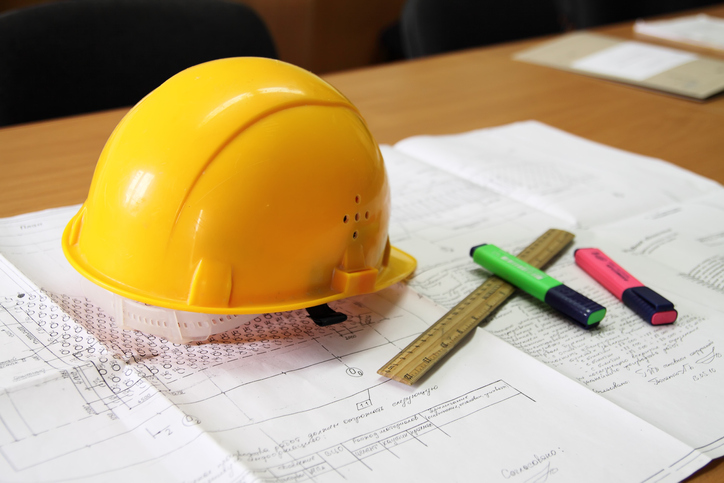In the job of an architect, commercial building codes are often one of the biggest hurdles to overcome. Not only do the specifics of building codes vary by project and location, but the research it takes to fully understand what you need to adhere to can be extensive. On top of that, different municipalities across the U.S. can choose which versions of codes they follow–or if they’re going to follow a set of internal codes. Which might leave some wondering exactly how to find building codes in your area.
As you can probably guess, the answer varies. Some areas will have building code information clearly displayed on their websites and the process will be fairly straightforward. Others might have outdated information or even too much information, making it difficult to find what you need.
Despite this, it’s always good to have a baseline. So, if you’ve been wondering about how to find building codes in your area, read on to find out where you can start.
What are the Types of Building Codes?
First, it’s important to remember that when you start your search for building codes in your area, you won’t be searching for one or two sets. Particularly when it comes to commercial projects, you could be searching for several.
Also keep in mind that if you’re working in a new location, the specific versions of different codes may vary (e.g. 2017 IBC vs the 2018 IBC), and that can make a big difference.
But in general, some of the standard codes that will usually apply no matter where you are or what you’re working on include:
- International Building Code (IBC)
- International Residential Code (IRC)
- International Fire Code (IFC)
- International Mechanical Code (IMC)
- Plumbing and Electrical
In truth, that’s only a sampling. The list of codes you may need for your project may seem endless, depending on the scope. It’s important to confirm the specific codes when you have a scope beyond what is listed above, such as a mezzanine roof, conveyor systems, racking, or any work that requires digging into the soil.
When going through this process of how to find building codes in your area, professional help can save you a lot of time, money, and stress. Not to mention ensure you don’t miss something small that might cause major delays. At Scout Services, we have the expertise and national reach to help you identify the codes that apply to your project in any municipality across the country.
Finding Local Codes in Your Area
When answering the question, “How to find building codes in your area”, there is one more important thing to note. While most municipalities adhere to some version of the international codes, they also likely have their own municipal codes as well. And, in a few rare cases, some locations may enforce only their own codes.
For instance, most cities in Florida enforce some version of the international codes listed above, but also enforce specific local building codes that ensure structures can withstand the force of hurricanes. California also has something called Title 24, which is a set of codes in two volumes that govern sustainability and structural safety for a wide range of projects in the state.
Perhaps one of the most unique cities is Chicago. It’s one of the only municipalities in the U.S. with its own building code: the Chicago Building Code, or CBC. While amendments have been made in recent years that bring the CBC closer to the international standards used in the rest of the nation, there are still a lot of unique nuances that you may not run into anywhere else. For example, there used to be a requirement that only cast iron could be used in plumbing projects (this is still the case in some circumstances).
How to Find Building Codes in Your Area
So, how do you find building codes in your area? In general, most of the information can be found online via government websites or building code databases.
However, one caveat is that government websites can often be out-of-date, have incomplete information, or be difficult to navigate. By the same token, building code databases may give you a thorough understanding of the codes themselves. However, the ways in which some locations implement those codes may differ.
In short? It’s rarely ever easy to figure out commercial building codes on your own. Bringing in professional expediters is the best way to find the codes that are relevant to your project and prevent major delays due to overlooked details.
Permit Experts Can Guide You Through How to Find Building Codes in Your Area
If you made it this far, it should come as no surprise that getting the full picture of the codes that apply to your commercial project can take hours of research. You could spend days poking around on a municipality’s website only to learn that the information you’ve been gathering is two years out-of-date. And nuances and project-specific requirements can be extremely easy to overlook, which in turn can lead to major delays in your project timeline.
At Scout Services, we are permitting experts for a wide range of commercial projects. With expediters on your side, you can be sure that your permit applications will have all the necessary components and address all relevant requirements. This enables you to get into review and get your permit approvals as quickly as possible.
We work in every municipality across the nation and we’re committed to making the permitting process as streamlined and painless as possible.
Are you looking for someone to handle the permitting process for your next commercial project so you can focus on doing your job? Get in touch with us today and let us know what you need.
Disclaimer: While we aim to provide the most accurate and up-to-date information possible, the local regulations and standards that govern the permitting process are constantly evolving. Reach out to us about your next project and we’ll connect you with one of our permitting experts in your area.

